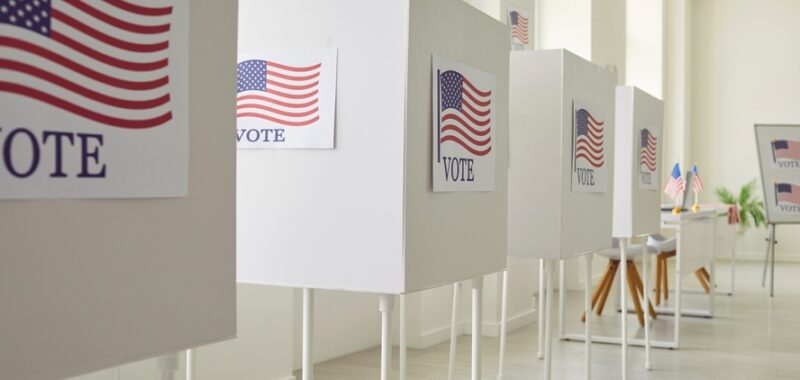Voting is one of the most fundamental rights in our democracy, and yet it can be incredibly challenging. Getting to your polling station, waiting in line, remembering to request your absentee ballot, checking your voter registration status—it is not a straightforward process. If you suffer from an unexpected illness or injury and find yourself hospitalized, it can feel impossible to make your voice heard and participate in an election. Fortunately, health care workers have an opportunity to advocate for our patients on Election Day by educating and helping them with emergency ballots. Emergency ballots provide a method to vote for patients who become hospitalized or disabled after the deadline to apply for an absentee ballot.
Rules for emergency ballots vary based on your state of residence. Thirty-eight states permit emergency ballots for medical emergencies such as “unforeseen illness, confinement to a medical facility, disabilities or accidents resulting in injury.” In several states, election officials can deliver emergency ballots to hospitalized patients. In other states, family members or designated agents (such as hospital workers!) can assist with emergency ballots. Be sure to check the guidelines for your state at Patient Voting prior to Election Day. Remember—emergency ballots allow our patients to participate in the democratic process and ensure their voice is heard, regardless of unforeseen illness or injury.
Submitting an emergency ballot is a multi-step process that can be confusing to patients and staff. First, the hospitalized patient needs to be aware that this process exists—this step is where health care workers can be particularly helpful. It is not common knowledge that there is a process in place for emergency ballots for admitted patients, and spreading this information is a simple step that can make a huge difference. Some hospitals have plans in place to ask every admitted patient on Election Day if they are interested in an emergency ballot. Other hospitals, possibly out of an abundance of caution to avoid politics, require that patients must ask providers first in order for information to be provided. Providing our patients with the means to exercise their right to vote is nonpartisan and is supported by the American Medical Association—hopefully hospital administration will consider this when creating policies and plans for Election Day.
After the patient decides they would like to vote via emergency ballot, the next step is for the patient to complete the emergency ballot application (available on your state’s government website). This application needs to be taken to the local election office. States have different policies regarding who can submit this application—some states mandate that it must be a family member, while other states allow “authorized agents”—a person designated and authorized by the patient to submit their ballot application. This normally requires a separate form completed by the patient in addition to the emergency ballot application—again, check your specific state’s requirements and policies.
At some hospitals, volunteers (staff members, medical students) will serve as the authorized agent to take the ballot application from the hospital to the election office. Our patients may not have family available, or the family may not have a ready means of transportation. Allowing volunteers to assist in the transportation of applications and ballots allows our most vulnerable and needy patients to vote.
After the ballot application is reviewed by election officials, the authorized agent will then be given the election ballot to return to the patient. This is taken back to the hospital and delivered to the patient. After they complete their ballot, it needs to be taken back to the election office to be counted.
This process can be confusing and overwhelming for patients who are already going through a challenging and possibly life-threatening experience. They are sick, in pain, and distressed. As physicians and health care workers, we have an opportunity to assist our patients who wish to participate in the election but who find themselves, through no fault of their own, admitted to the hospital. Lack of civic participation is linked to “poor self-rated health, independent of both income inequality and median household income.” In a policy statement from June 2022, the AMA “supports measures to facilitate equitable access… [and] acknowledges voting is a social determinant of health.” When hospitals and health care workers assist with the emergency ballot process, they show that health care institutions recognize the importance of civic participation for our patients and are committed to helping patients remain connected and involved in their communities and exercise their rights as United States citizens, even in times of personal crisis.
Emergency department patients often represent a population that has faced countless structural and social challenges and often do not have a strong voice in our political system. By assisting emergency department patients and hospitalized patients on Election Day to exercise their right to vote, we empower our patients and help them advocate for themselves and their communities through our democratic process.
Claire Abramoff is an emergency physician.


